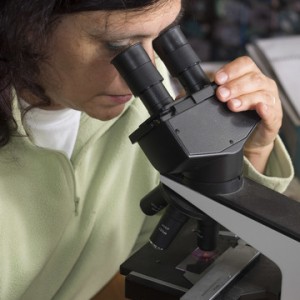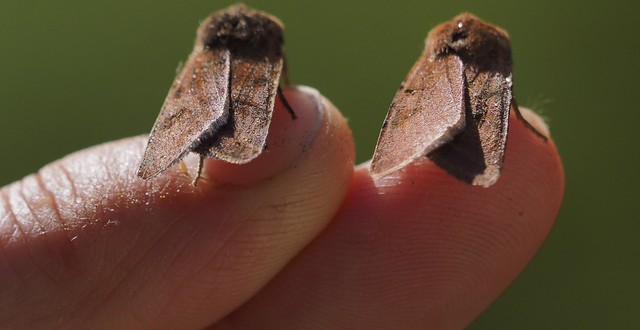The researcher Paula Banza is studying the importance of moths in the burnt areas of the eastern Algarve in order to deepen the relationship between the pollinators and plants in the regeneration of the vegetation in the destroyed areas. Since the

spring of 2013, the first following the fires, she has been capturing insects on a regular basis in three areas where there were fires and three that were unaffected, in order to analyse possible differences in their behavioural patterns. In a laboratory, they are subjected to a process that allows the grains of pollen they are carrying to be collected, which are then analysed under a microscope to compare them with pollen collected from plants to see which species they belong to.
By means of statistical studies, Dr. Banza manages to establish which are the most important plants in the regeneration of vegetation, and which insects have the greatest influence in the propagation of each plant species. This study is fundamental in discovering the weak points in the ecosystem and which are the key plants and insects, so that these species can be protected in areas where forest fires are frequent and devastating (such as Portugal). Or in order to replant these species in affected areas to help them to recover better. At the end of the first year of field work scheduled to last for two years, there are already some 3,000 microscopic preparations, corresponding to about 700 different species of insect. Although the study will focus on moths, which are nocturnal, the researcher also aims to compare the importance of nocturnal and diurnal species in the pollination process.
Degree in the teaching of biology and geography and 18 years experience as a teacher. Seven years with the association ‘A Rocha’ as an environmental educator, also working as Scientific Director. Master’s degree in conservation biology at the University of Évora. She is in her second year studying for her doctorate at the University of Évora.
 Eco123 Revista da Economia e Ecologia
Eco123 Revista da Economia e Ecologia



